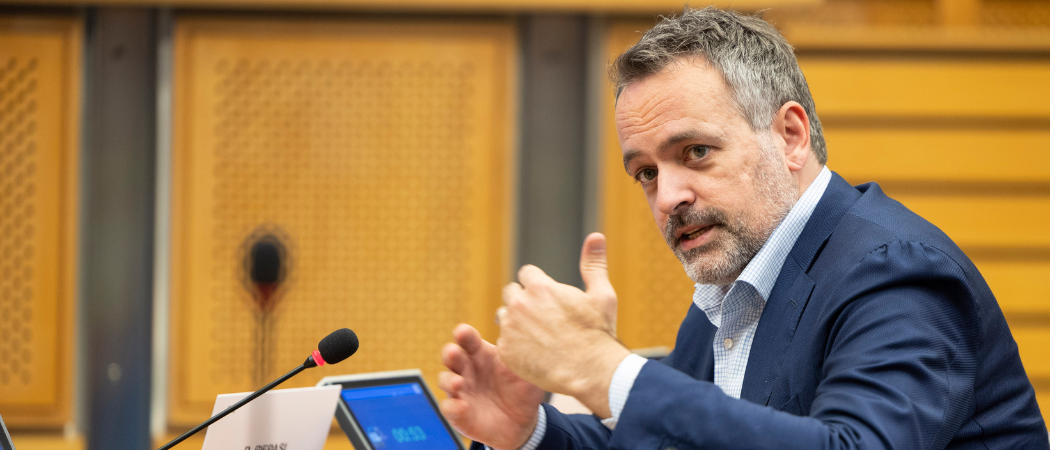Plan to fund defence-linked research risks damaging openness, academic autonomy and simplification

MEP René Repasi. Photo credits: Alexis Haulot / European Union
Including dual-use R&D projects in the next EU research Framework Programme raises a wide range of concerns, according to one of the MEPs involved in preparing for the proposal. These range from a negative impact on academic freedom to increased bureaucracy in EU research funding.
The risk is such that even the promise of doubling the research budget is being met with caution, according to René Repasi, the German MEP who represented the Socialists & Democrats in discussions on the Parliament’s recent own-initiative report on the next Framework Programme.
“The question is whether the increase in budget is such a great gift, if it comes with limitations on how research is actually conducted,” Repasi told Science|Business.
On July 17 the European commissioner responsible for research, Ekaterina Zaharieva, confirmed that dual use projects will be supported across the next Horizon Europe programme. Previously, the European Commission had suggested that only the European Innovation Council (EIC) would be exempt from a rule that insisted only research with civil applications can win EU funding.
Under the new proposal, the EIC will include support for defence and dual-use start-ups, while Pillar 2 of Horizon Europe, which funds collaborative research, will including a window dedicated to resilience and security, the defence industry and space.
“The whole proposal is trying to squeeze as much out of [the EU budget] as possible for defence,” Repasi said. “The EU treaties actually prohibit the EU budget from directly funding the defence spending of member states. Therefore, there are many indirect ways of doing this, and dual use is one of them.”
Related articles:
- Horizon Europe will be ‘dual use by default,’ Zaharieva says
- Commission puts forward €175B budget for FP10
- Praise for Commission’s research programme proposal, but concerns linger over its vagueness
Funding projects with both civilian and military applications could come at a cost, he went on, as opening the door to military involvement triggers a range of additional safeguards. These include restrictions on the involvement of third-country nationals, confidentiality requirements, legal clauses and extensive paperwork.
Not only does this run against the desire to simplify research EU funding, but it also risks clashing with the idea of research as open-access, shared knowledge, which is meant to foster collaboration.
Command and control
Beyond the issue of dual use, Repasi also raised concerns about the “strange overlap” between the Framework Programme and the European Competitiveness Fund in the Commission’s proposal. This overlap, he said, suggests a heavily programmed and therefore top-down approach.
He also criticised the Commission’s intervention in the governance of independent bodies such as the European Research Council (ERC) and the EIC, particularly the proposed term limits for the ERC president. “The European Commission will most definitely have to explain why it wants to limit the autonomy of these self-regulated bodies of experts in academia,” Repasi said.
Meanwhile, the Commission’s decision on the overall budget structure will have broader implications for other scientific fields, particularly the social sciences, which Repasi sees as the “big losers” in this proposal.





 A unique international forum for public research organisations and companies to connect their external engagement with strategic interests around their R&D system.
A unique international forum for public research organisations and companies to connect their external engagement with strategic interests around their R&D system.